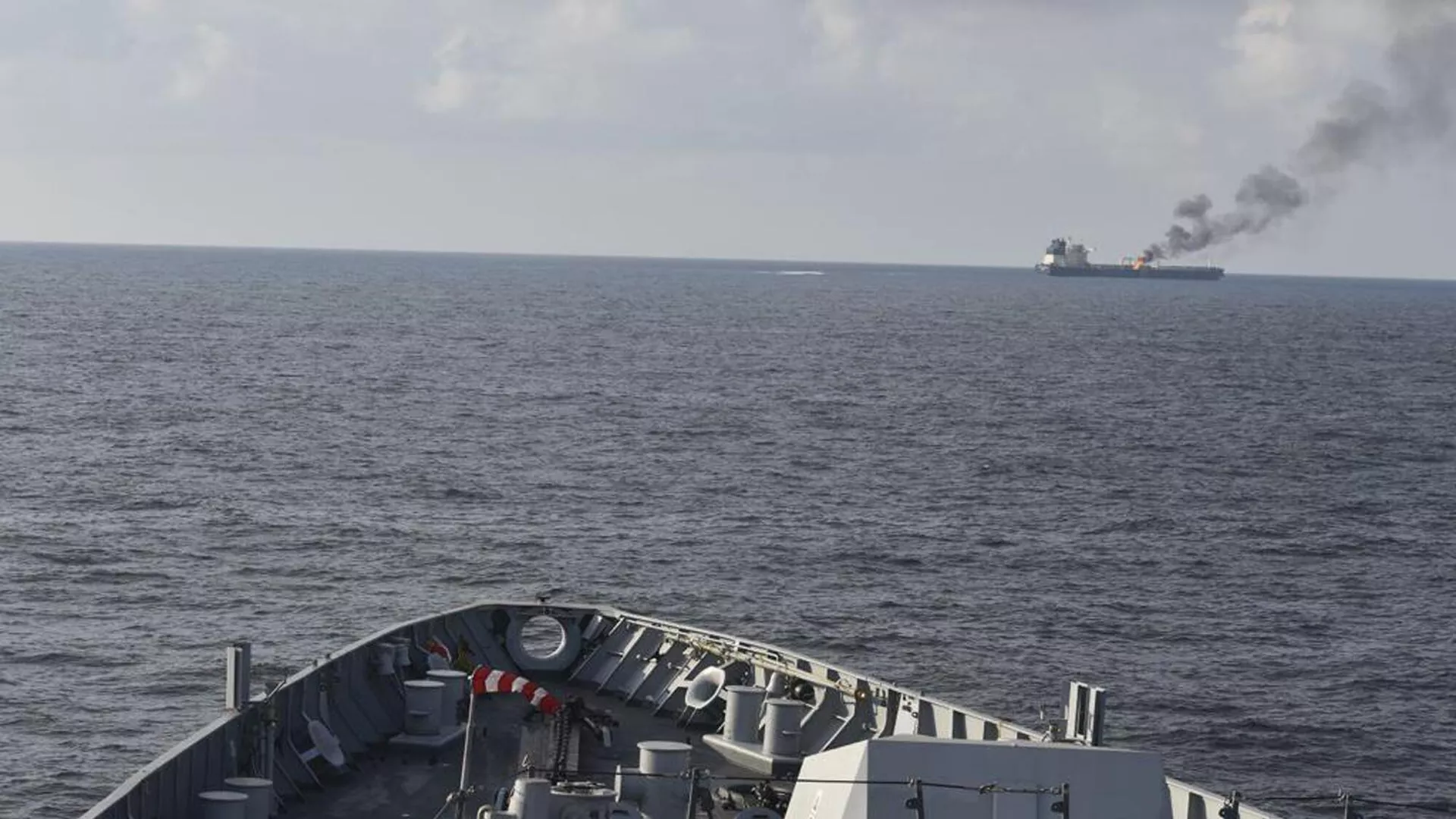The Yemeni militia kicked off a guerilla campaign of drone and missile attacks against merchant shipping in the Red and Arabian Seas last November, with the campaign targeting suspected Israeli-owned vessels, US and British warships, and any ships thought to be heading to a port in Israel to fuel the ongoing war in Gaza.
The Liberian-flagged, Greek-managed Delta Atlantica oil tanker was attacked three times in a row on Tuesday, the US-UK Joint Maritime Information Center has reported. The first two attacks were said to have targeted the tanker off the Yemeni port city of Hodeida (the same port attacked by Israel last month). At least one of the Houthi attacks are said to have involved a bomb-carrying drone boat, taking place after a small “suspicious” ship “flashed lights” at the tanker, triggering an explosion nearby.
A second tanker, the Panama-flagged crude carrier On Phoenix, was also targeted, the JMIC said.
Both vessels and their crew are said to be “safe” and proceeding to their destinations, with the Delta Atlantica reportedly bound for Agioi Theodoroi, Greece from the Persian Gulf. The On Phoenix is said to be on route to Amsterdam from the Mina Saud Anchorage in Kuwait.
The reason for the Houthis’ apparent obsession in the Delta Atlantica is unclear, although the Yemeni militia has been known to take a special interest in oil tankers suspected to be heading for Israeli ports to fuel Tel Aviv’s economy and war machine.
The Houthis have targeted over 70 vessels to date with missiles, unmanned aerial vehicles and drone boats, damaging at least 30 and sinking one British and one Greek-owned cargo vessel since last November, respectively.
The US and Britain kicked off a large-scale campaign of bombings in Yemen in January to try to “degrade” the militia’s capabilities, but have so far proven incapable of doing so, with the militia only ramping up its campaign into the Indian Ocean and Mediterranean Sea and launching direct attacks on Israel itself. The US Navy has expended well over a billion dollars in ammunition targeting the Houthis, with little to show for it as global shipping giants to stay away from the Red Sea, with the Israeli Red Sea port of Eilat filing for
bankruptcy last month after nearly nine months of standing empty.
The Houthi blockade has closed off the estimated $1 trillion-a-year trade artery to Israeli and Western marine traffic, adding an average of one million dollars to each large ship’s fuel bill and forcing them to take the long way around western Africa, and increasing insurance costs, with throughput via the Red Sea dropping by up to
90 percent in some shipping categories.
The campaign has also reportedly affected the super yachts of the super rich, with owners
complaining to media that private yachts had largely been forced to quit transits through the Red Sea amid insurance premiums and security requirements too pricey even for the the very well-to-do.











